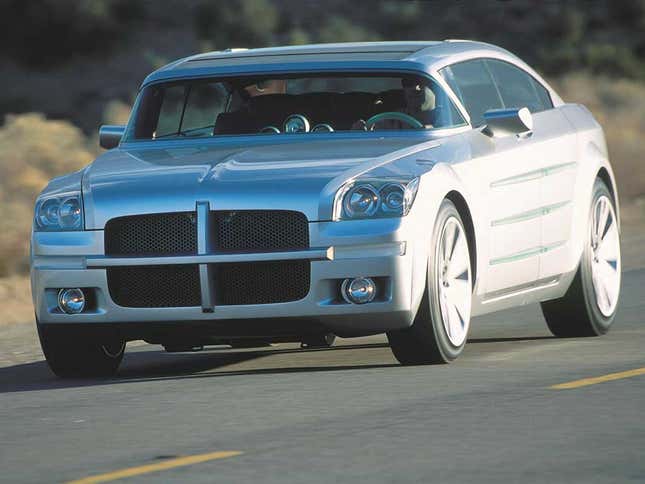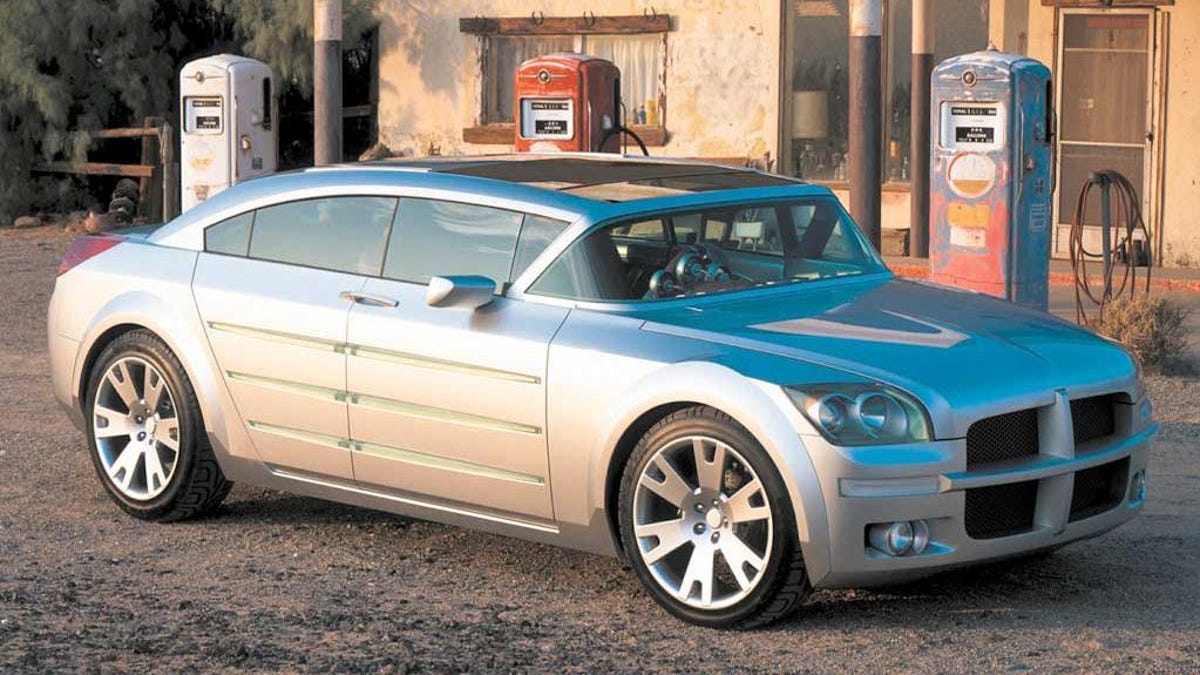As we’ve seen recently, Chrysler has a history with making some decent looking, near-production-ready concept cars. Not all of them were hits, though. Some of Mopar’s concepts have become long forgotten, and for good reasons too. One of those concepts was the Dodge Super8 Hemi Concept from 2001.
The Super8 was conceived during Chrysler’s time under the DaimlerChrysler “merger of equals.” The design was led by a team headed by Freeman Thomas, who was DaimlerChrysler’s vice president of advanced product design strategy at the time. The team’s goal was a strange one, an answer to a question no one was asking: blend the post-WWII “exuberance” of 1950s American cars with the visual, in-your-face punch of a 21st-century V8-powered pickup truck. That is how Thomas described the Super8 Hemi to Motor Trend, saying “The Dodge Super8 Hemi embodies the culture and essence of all-American optimism.”
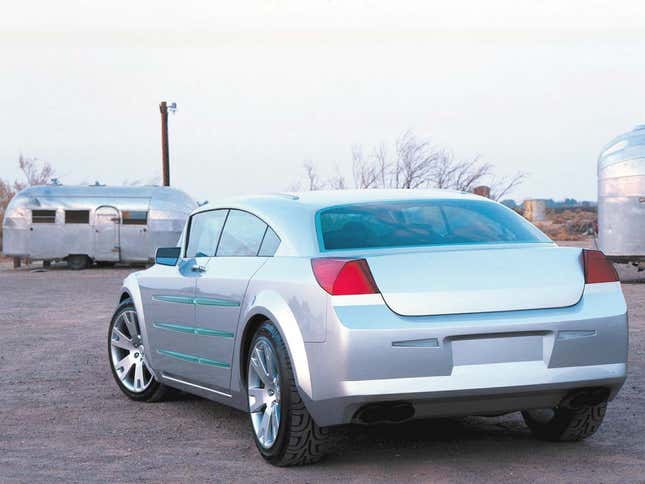
The result is certainly in your face. Up front, the massive fascia wears an exaggerated example of Dodge’s crosshair grille with a hood that flows into and bulges above it, forming a distinctive snout. The headlights, strakes in the bumpers and along the sides, and the rear window treatment are made of green plastic — another design inspiration pulled from the 1950s.
The Super8 Hemi also has a unique almost cab-forward stance, emphasized by its wide track, low ride height and 22-inch wheels, which were massive for the time. And to keep weight down, the body of the concept was done up in carbon fiber and other lightweight composites.
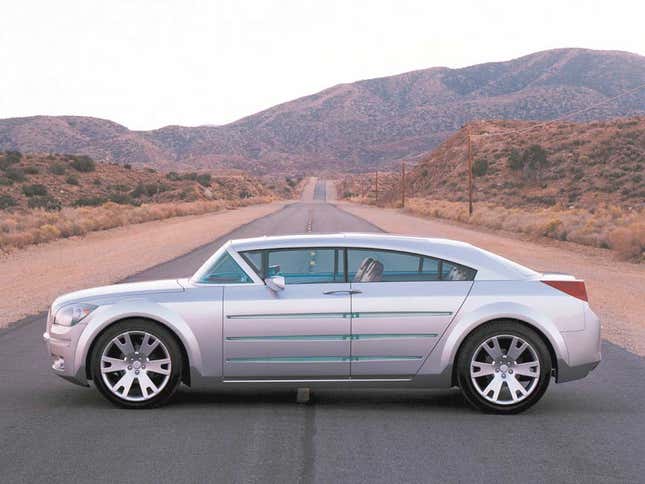
The interior looks better but is still, let’s just say, interesting. Inspiration for the cabin came from the 1950s as well, with designers saying they hoped anyone looking at it would get reminded of diners and old juke boxes. Brushed aluminum and orange is found everywhere, and it has a pushbutton shifter and a gauge cluster that sits in the center of the dash.
Underneath that is an infotainment system that looks like a massive CD player. It ran on a system designed by Sun Microsystems and featured telematics and entertainment features that are pretty common now, like navigation with real-time traffic and access to smart home features. The Super8 also has dual rear LCD screens so rear passengers could browse the internet or play games.
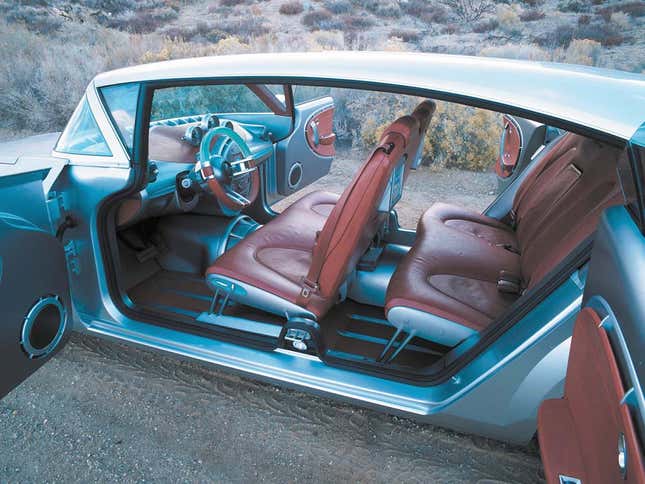
While the Super8 Hemi’s design may have upset some, everyone was excited about what the concept was really created to showcase. The concept’s underpinnings and powertrain were a preview of what would eventually become the LX platform and the reintroduction of the 5.7-liter Hemi V8. The engine made 395 pound-feet of torque and was paired with a 4-speed automatic from the Jeep Grand Cherokee. It also used a rear differential and an independent rear suspension setup lifted from the W220 Mercedes-Benz S-Class.
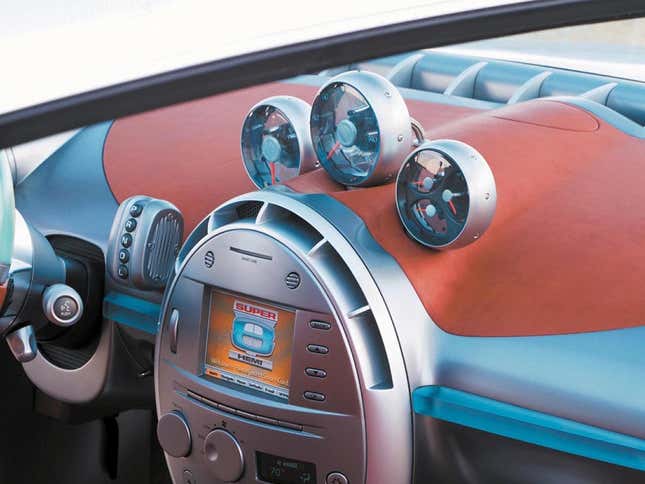
DaimlerChrysler’s executive vice president of product development Rich Schaum explained how the modern engine tech that was going into the big V8: “Anybody can do an all-aluminum DOHC state-of-the-art high-specific-output V-6 engine and it’ll be costly. But why can’t I have a hemispherical-combustion-chamber high-technology V-8? What would happen if we applied all the latest technology to a central-cam [OHV] engine. If we give higher value at lower cost to our customer, what’s wrong with that solution?”
He also explained how the company had figured out a way to do rear-wheel drive for a reasonable price. “We have concluded that, yes, there is a way to make [rear-wheel drive] work for a $35,000 to $40,000 vehicle, although nothing’s approved,” he said, “and I really want to make it work because it gives us a proportion that we can’t achieve otherwise.” Little did we know that a wild looking concept like the Super8 Hemi was hiding a platform and engine underneath that would be on dealer lots in just a few years time. Too bad it didn’t look much better.
